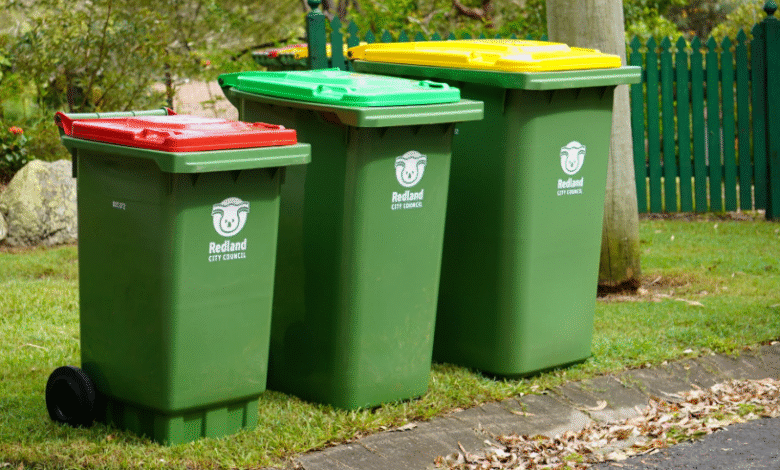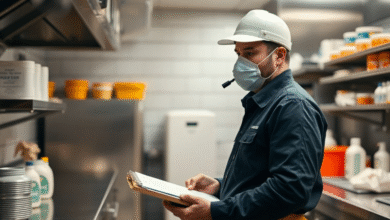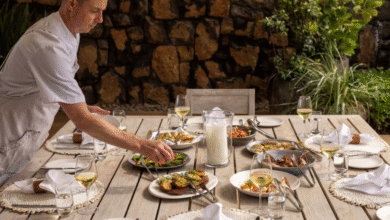What You Can and Can’t Throw Out: Household Waste Rules in Sydney’s Eastern Suburbs

Managing household waste can be confusing for Sydney residents, particularly in the Eastern Suburbs, where council regulations, recycling programs, and private waste removal services all intersect. Whether you live in Bondi, Coogee, Maroubra, Randwick, or Vaucluse, understanding what can and cannot be disposed of in your household bins is essential for protecting the environment and avoiding fines.
This guide will help you navigate household waste rules in Sydney’s Eastern Suburbs, covering general waste, recycling, green waste, and hazardous materials.
Understanding the Types of Household Waste
Before learning what you can and cannot throw out, it’s important to understand the different categories of household waste:
- General Waste – Items that cannot be recycled or composted, such as broken ceramics, non-recyclable plastics, and certain food scraps.
- Recycling – Paper, cardboard, glass, aluminium, and certain plastics that can be processed and reused.
- Green Waste – Organic garden materials such as grass clippings, leaves, and small branches.
- Hazardous Waste – Chemicals, batteries, paint, electronic waste, and other materials that require special disposal.
Sorting your household rubbish into these categories makes disposal easier, ensures compliance with local regulations, and supports Sydney’s sustainability goals.
What You Can Throw Out in Your General Waste Bin
The general waste bin in most Eastern Suburbs councils is designed for items that cannot be recycled or composted. Acceptable items usually include:
- Food scraps that are not suitable for composting
- Small broken household items such as crockery or toys
- Soft plastics that cannot be recycled
- Non-recyclable packaging
- Hygiene products such as nappies, tissues, and sanitary items
It is important to note that general waste should not include hazardous materials, chemicals, or electronics. These items require special handling and often cannot be collected in standard bin services.
Recycling: What Can and Cannot Go in Your Recycling Bin
Recycling rules in Sydney can vary slightly depending on the local council, but generally, the following applies:
Accepted Recycling Items:
- Paper, magazines, and cardboard (flattened)
- Glass bottles and jars
- Aluminium and steel cans
- Hard plastics marked with recycling symbols 1-7
- Clean food packaging
Items You Cannot Recycle:
- Plastic bags and soft plastics
- Polystyrene foam
- Soiled paper or cardboard (such as pizza boxes)
- Broken glass, mirrors, or ceramics
- Clothing or textiles
Placing non-recyclable items in your recycling bin can contaminate the entire load, meaning it may end up in landfill instead of being reused.
Green Waste: Managing Garden Rubbish
Many Eastern Suburbs councils provide separate bins or collection services for green waste, which helps reduce landfill and supports composting programs. Acceptable green waste typically includes:
- Grass clippings
- Leaves and garden prunings
- Small branches and twigs
- Plants and shrubs
Items Not Accepted in Green Waste Bins:
- Soil or rocks
- Large tree branches or logs
- Garden chemicals or treated wood
- Plastic bags containing garden waste
For larger garden clean-ups, residents often need to book a household waste removal service or take oversized items to designated council transfer stations.
See also: Professional Lighting Installation Services for Homes and Businesses
Hazardous and Special Waste: Handle With Care
Certain household items are hazardous and cannot go into standard bins due to their potential to harm people, wildlife, or the environment. These include:
- Paint, solvents, and chemicals
- Batteries and fluorescent light bulbs
- Gas cylinders and fire extinguishers
- Electronic waste such as computers, TVs, and printers
- Medical or pharmaceutical waste
Eastern Suburbs residents should utilise local hazardous waste collection services or drop-off points. Many councils organise free or low-cost hazardous waste days, and some private companies offer safe disposal services for electronics and chemicals.
Bulky Waste: Furniture and Large Items
Large items like mattresses, sofas, old appliances, and broken furniture usually cannot fit into your standard bins. Councils in the Eastern Suburbs often provide:
- Scheduled bulky waste collection days – Residents can book a pick-up for items too large for standard bins.
- Drop-off facilities – Local waste transfer stations accept oversized household items.
Alternatively, private household waste removal services in Sydney’s Eastern Suburbs can collect bulky items from your home and ensure they are recycled or disposed of correctly.
Fines and Penalties for Incorrect Waste Disposal
Sydney councils take waste management seriously. Improper disposal can result in fines or penalties. Common issues include:
- Placing recyclables in the general waste bin or vice versa
- Dumping green waste in public areas
- Disposing of hazardous chemicals in household bins
- Leaving waste out before collection day
Eastern Suburbs residents are encouraged to check their local council website for detailed guidelines to avoid penalties and help keep the community clean and safe.
How to Reduce Household Waste
Proper disposal is just part of the equation. Residents can also reduce the amount of waste they produce through smart practices:
- Composting: Convert kitchen scraps and garden waste into nutrient-rich compost.
- Reusing and donating: Donate clothes, furniture, and household items instead of throwing them out.
- Bulk buying and minimal packaging: Reduce the volume of packaging waste.
- Recycling electronics: Participate in e-waste recycling programs.
By reducing, reusing, and recycling, you contribute to a cleaner, more sustainable Eastern Sydney community.
Private Household Waste Removal Services
Sometimes, standard council bins and collections are not enough. For larger clean-ups, renovations, or moving house, private household waste removal services in the Eastern Suburbs are a convenient option. Benefits include:
- Faster collection times compared to council services
- Flexible scheduling and on-demand bookings
- Proper sorting of waste to maximise recycling
- Safe disposal of hazardous or bulky items
Choosing a reputable local company ensures your waste is handled responsibly and complies with all regulations.
Local Council Resources for Eastern Suburbs Residents
Each Eastern Suburbs council provides information and resources to help residents manage their household waste effectively:
- Waverley Council – Bondi, Bronte, Tamarama
- Randwick City Council – Coogee, Maroubra, Clovelly
- Woollahra Municipal Council – Vaucluse, Double Bay, Rose Bay
These councils often have downloadable waste guides, collection calendars, and recycling tips that are tailored to local residents. Checking your council’s website is the best way to stay updated on collection schedules and accepted materials.
Final Thoughts
Understanding what you can and cannot throw out in Sydney’s Eastern Suburbs is essential for keeping your home clean, complying with local regulations, and protecting the environment. Proper waste management involves sorting general rubbish, recycling, green waste, hazardous materials, and bulky items correctly.
By following local guidelines, reducing household waste, and using private waste removal services when necessary, residents in Bondi, Coogee, Maroubra, Randwick, and surrounding suburbs can make a positive contribution to the community.
Managing waste responsibly is not only about avoiding fines but also about building a sustainable and cleaner Eastern Sydney for everyone.




